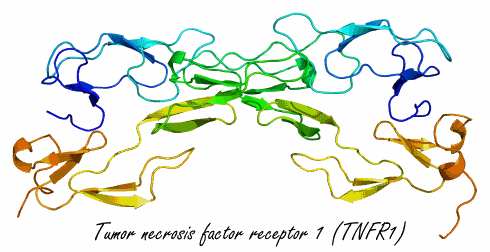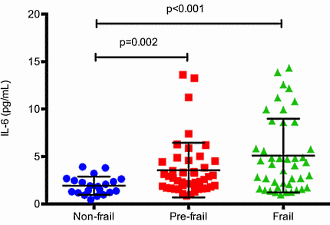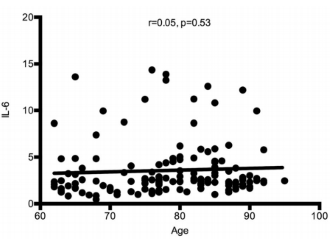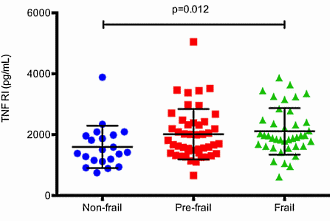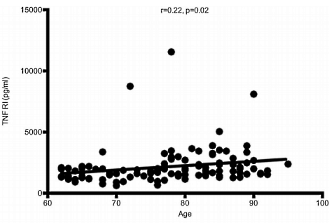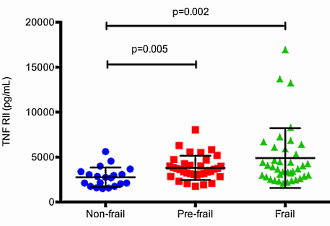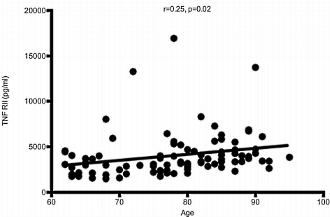This epidemiological study suggest that an anti-inflammatory lifestyle helps you keep fit and vital in old age.
High levels of inflammatory factors increase the risk of cardiovascular diseases and cancer. Fortunately, you can partially control how much inflammatory factors your body produces. Good nutrition and a healthy lifestyle can cause the activity of those factors to diminish, we wrote earlier. An epidemiological study, published in 2016 in Immunity & Aging, suggests that an anti-inflammatory lifestyle also ensures that you stay fit and vital in old age.
Study
American geriatricians, associated with the Louis Stokes Cleveland VA Medical Center, determined the degree of frailty in 117 study participants aged 62-95 years. Fragile older people are tired quickly, lose muscle mass and strength, walk slowly and are physically not or hardly active.
At the same time, the researchers determined the concentration of a number of inflammatory factors in the blood of the study participants.
Results
In the blood of the study participants in the pre-stage of frailty, the researchers found more of the inflammatory factor interleukin-6 than among the participants who were still completely fit, and even more interleukin-6 in the blood of the study participants with full blown frailty.
As the subjects were older, the researchers found more interleukin-6 in their blood. However, the link between frailty and interleukin-6 was stronger than the relationship between interleukin-6 and age.
The same was the case with the concentration of soluble Tumor Necrosis Factor Receptor-1 [TNFR1], another inflammatory marker. The higher the concentration, the greater the chance of frailty. And although the concentration of TNFR1 was higher as the study participants were older, the relationship between frailty and TNFR1 was stronger than the relationship between TNFR1 and age.
The researchers also looked at the concentration of TNFRF2 related to TNFR1. They found similar correlations.
Conclusion
“In conclusion, among older adults, these data suggest that frailty may be more strongly related to inflammation and the inflammatory index than age”, write the researchers.
Source:
Immun Ageing. 2016 Oct 19;13:27.


